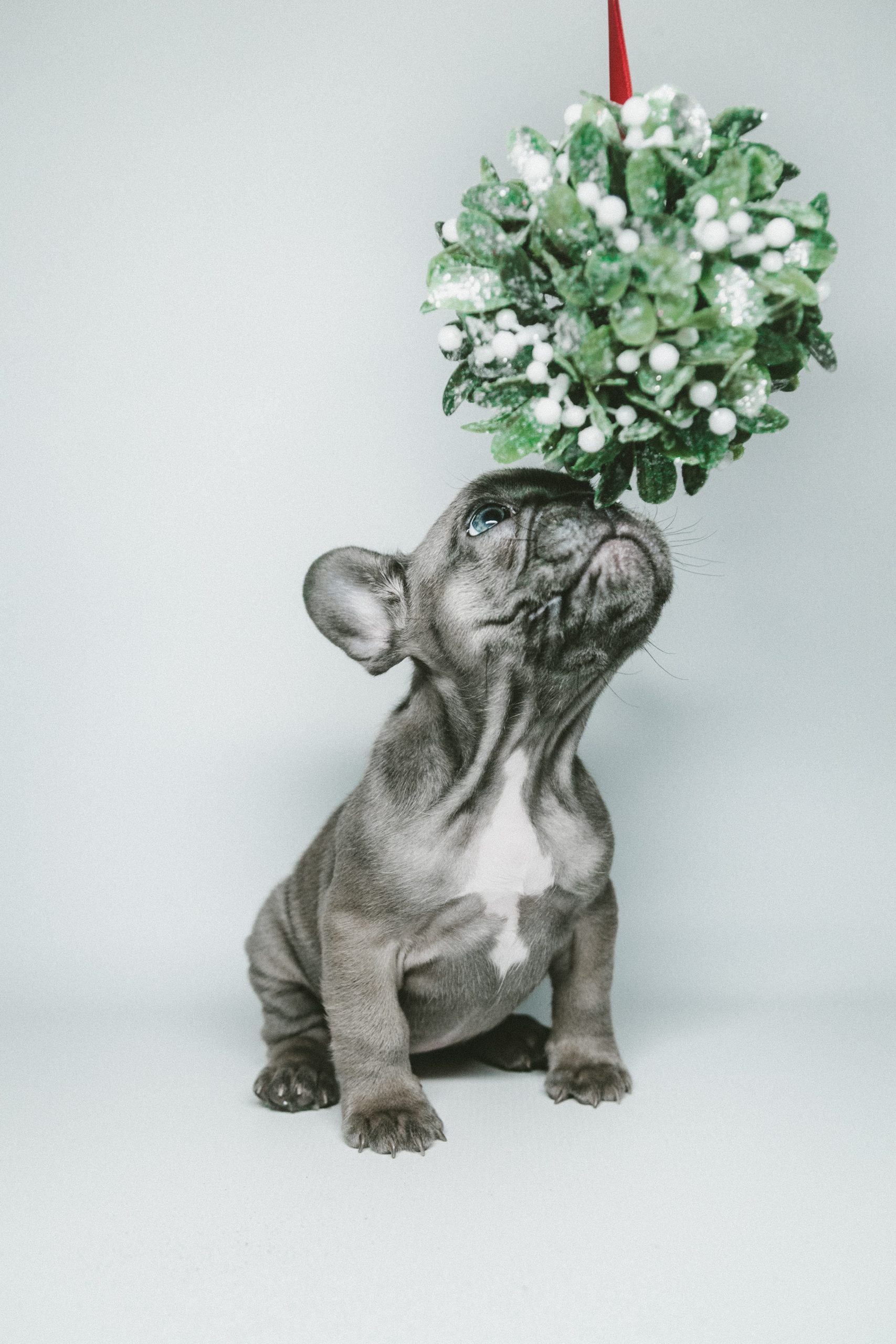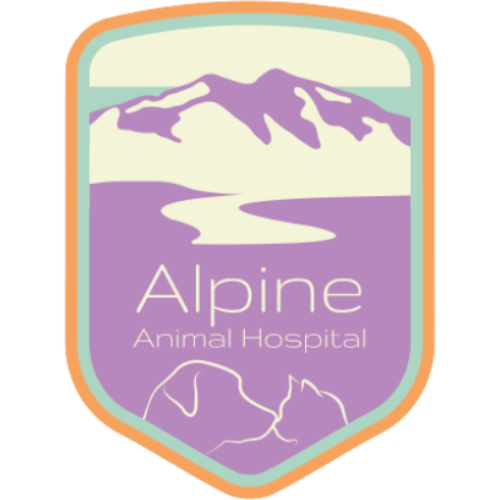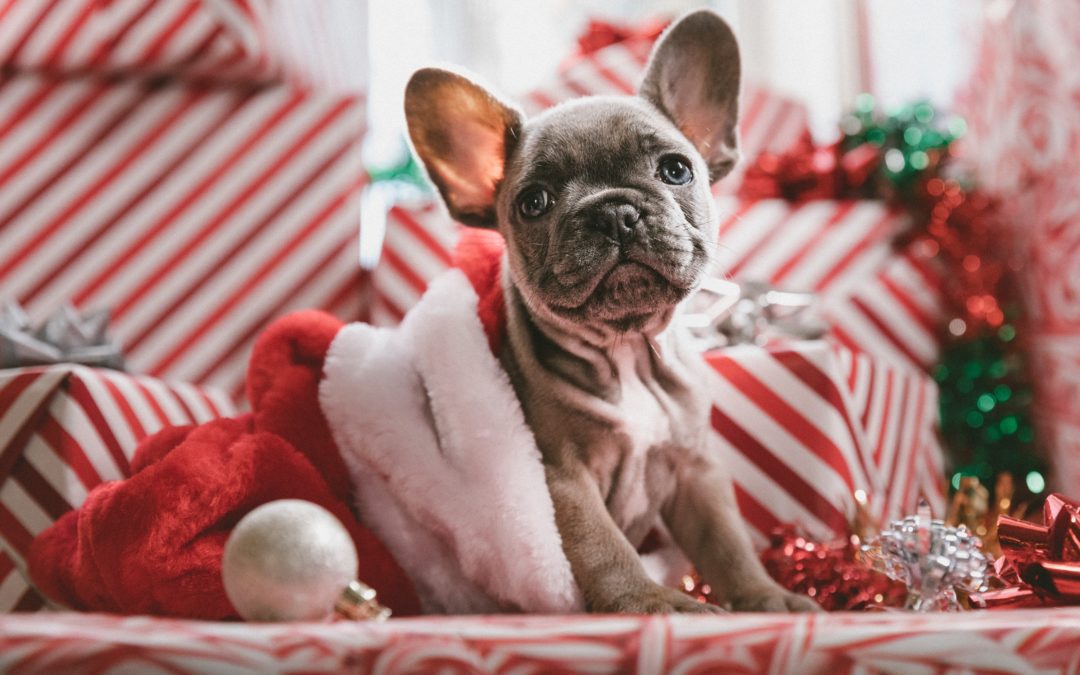By Dr. Caroline Frank
As we approach the time of the year to deck the halls and spread yule tide cheer, our 4-legged friends must be watched with a close eye as to not end up on the Veterinarian’s naughty list. Not only do we need to worry about the wonderful food we humans celebrate with during this time, but also our decor. Decorations and trimmings can be hazardous to our beloved 4-legged friends too. The 3 main groups of holiday hazards are food, plants, and decor.
The most obvious hazard that most pet owners are aware of around the holiday season is food. Many of which can cause severe illnesses if ingested. As we know, many of the sweets we eat contain cocoa or chocolate. The pet toxic compound in chocolate is theobromine. The level of toxicity of a certain chocolate product depends upon the amount of theobromine ingested. Milk chocolate and white chocolate contain the lowest amount of theobromine, while baker’s chocolate and dark chocolate contain the highest amount. Small amounts of theobromine ingestion can lead to vomiting and diarrhea, while larger amounts can cause cardiovascular disturbances, neurologic signs, and possibly even death. Another additive beginning to make its way into more of our sweets and candies is a natural sweetener known as Xylitol. Ingestion of xylitol will cause pets to exhibit life threatening decreases in blood sugar, as well as possible liver failure.
Many pet owners believe that some foods are okay to feed to their pets, such as ham, turkey, potatoes, green beans, etc. Often, if your pet is not used to these foods or they are eaten in excess, they can cause gastrointestinal upset. If these foods contain a large amount of fat it can lead to pancreatitis (inflammation of the pancreas). Pancreatitis typically requires hospitalization and supportive care; it can cause severe gastrointestinal upset, liver damage, clotting disorders, and possibly be fatal.

The last and final concern that I am going to discuss is string lights and ornaments. Cats often love strings and bright lights, so during this holiday season, we need to be extra vigilant about where we place our electrical decorations and how accessible they are to our furry family members. Unfortunately, accidents happen despite best efforts to keep your pet safe. Thus, it is important to recognize the symptoms of electrical shock. The external signs often include neurologic signs like an inability to balance and being unresponsive to your attention or other stimuli. It is extremely important to get your animal to the vet if you suspect they have been shocked. Ingesting ornaments is another potential hazard to all animals. The best way to keep your pet(s) safe is to keep ornaments out of reach. Even playing with ornaments can lead to accidental ingestion or oral trauma. If you find that you are missing ornaments, monitor your pet for signs of oral pain (drooling, pawing at their face, not eating), vomiting, diarrhea, and lethargy. If your pet is exhibiting any of these signs, your pet needs to be seen by a veterinarian.
The holidays are a time for celebration, joy, and enjoying our loved ones. That being said, we often get distracted and may not realize the potential hazards that we put in our homes during this time of year that can pose a danger to our pets. While you are enjoying the holiday season, be sure to maintain awareness of your pets and keep them safe and happy. We hope that you have a fantastic holiday with your loved ones (both pets and humans). If you have any questions or concerns regarding any hazards around the holidays, please call our office.
Other resources that can be helpful to have on hand is the ASPCA Poison Control (website: https://www.aspca.org/pet-care/animal-poison-control ; Phone: (888)-426-4435 ) or the Pet Poison Control Helpline (website: https://www.petpoisonhelpline.com/ ; Phone: (855)-764-7661)

